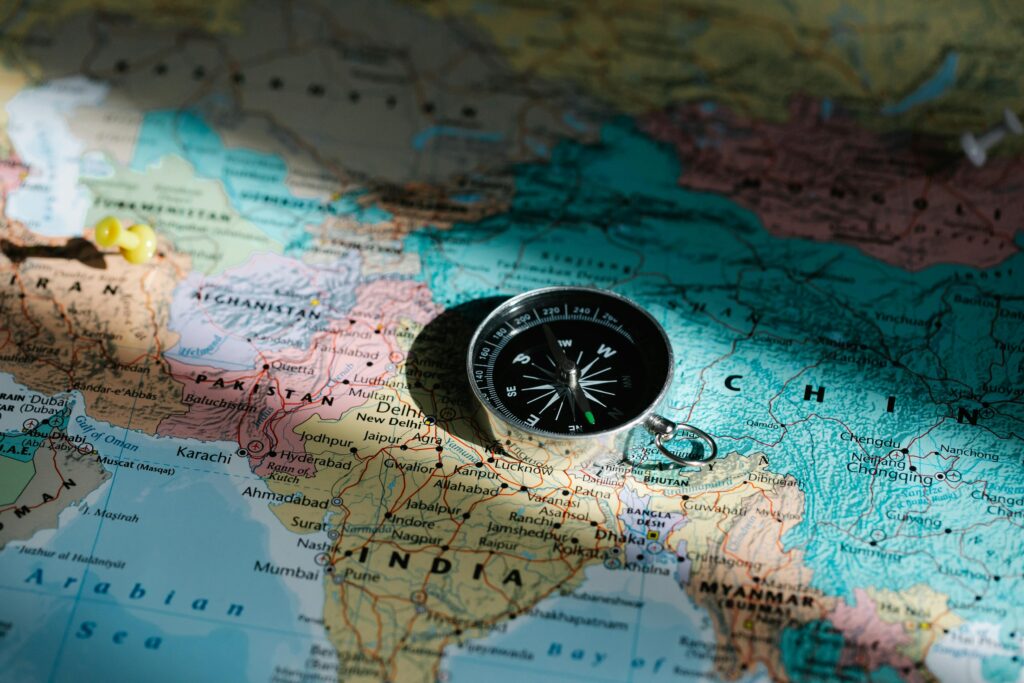- Politics
- Iran-Israel Conflict
- By Manohar Patil
Delhi's Balancing Act: Navigating the Iran-Israel War
As the Iran-Israel conflict escalates, moving from proxy skirmishes to direct military confrontation, the reverberations are felt globally. In Delhi, a careful diplomatic tightrope walk is underway. India, with its deep historical ties, significant economic interests, and a large diaspora in the region, views the Iran-Israel conflict through a multifaceted lens, prioritizing de-escalation, regional stability, and the protection of its national interests above all else.
A Long History of Bilateral Relationships
India has historically maintained robust and independent relationships with both Iran and Israel, a testament to its policy of strategic autonomy. With Israel, India shares a strong and growing defense partnership, with Israel being a key supplier of advanced military technology, including drones and missile defense systems. Bilateral trade with Israel also remains significant.
Simultaneously, India’s ties with Iran are rooted in ancient civilizational links and continue to be vital for India’s energy security and connectivity to Central Asia and Afghanistan. The Chabahar Port, developed with Indian investment, is a crucial gateway bypassing Pakistan and facilitating trade and humanitarian aid. Iran has also been a steadfast friend to India on various international forums. This unique position means Delhi cannot afford to align unequivocally with either side.
Economic Repercussions and Energy Security
The most immediate and pressing concern for Delhi stems from the economic fallout of the escalating conflict. India is heavily reliant on oil imports, with a significant portion transiting through the Strait of Hormuz, a crucial choke point that Iran has threatened to close. Any disruption to this vital maritime corridor would lead to a sharp increase in global oil prices, directly impacting India’s economy through increased inflation and a strained current account deficit. The Red Sea route, already affected by Houthi attacks, further exacerbates the challenges for India’s trade with Europe and other regions.
Beyond energy, India’s substantial trade with West Asian countries, including Iraq, Jordan, Lebanon, and Syria, is at risk. Exports of key Indian products like Basmati rice, bananas, and tea could suffer significantly due to disruptions in shipping, increased freight and insurance costs, and dampened demand in the affected regions. A prolonged conflict would thus have a cascading negative effect on India’s overall trade and economic growth.
Diplomatic Maneuvers and Calls for De-escalation
Delhi’s diplomatic approach has been consistently to call for immediate de-escalation, dialogue, and diplomacy as the only way forward. Prime Minister Narendra Modi has engaged directly with Iranian President Masoud Pezeshkian, expressing deep concern over the escalations and reiterating India’s stance on peaceful resolution. The Iranian President, in turn, has acknowledged India’s voice as important in restoring regional peace and stability.
India has also been careful to avoid taking partisan positions in international forums. Notably, it distanced itself from a recent Shanghai Cooperation Organisation (SCO) statement that condemned Israeli military strikes on Iran. This reflects India’s commitment to maintaining its strategic autonomy and its ability to engage with all parties without being drawn into regional rivalries. Delhi aims to remain a credible voice for peace and stability, leveraging its strong relationships with both sides to encourage restraint.
Protecting Citizens and Regional Influence
The safety of the large Indian diaspora in both Israel and Iran, and across the wider West Asia region, is another critical concern. The Indian government has issued travel advisories and is actively monitoring the situation to ensure the well-being of its citizens.
Ultimately, Delhi’s nuanced approach to the Iran-Israel conflict is driven by a pragmatic assessment of its national interests. Maintaining stability in West Asia is paramount for India’s energy security, trade routes, diaspora’s safety, and its broader aspirations for regional and global influence. As the conflict unfolds, India will continue to advocate for dialogue and diplomacy, hoping to avert a wider conflagration that would have devastating consequences for the region and the world.
Share this Article
WhatsApp
LinkedIn
Telegram
Email
Get Daily Updates to Your Inbox
Subscribe to News Letter
Advertisement


